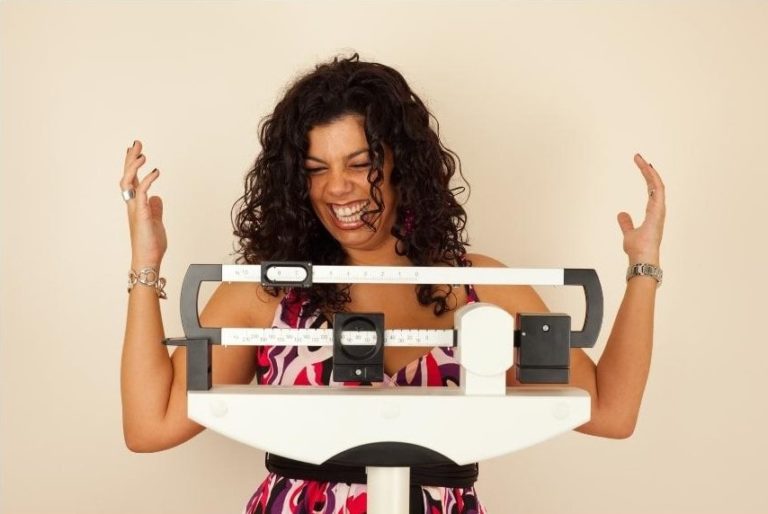Weight Loss Plateaus - Why they will happen and what you can do

Weight Loss Plateaus - what to do when the inevitable happens
Each person’s weight loss journey looks different but every single one of us will be faced with hitting a plateau in our progress at some time. It is, unfortunately, an inevitable part of the process. We may encounter it after a few months, maybe after six months. But at some point, despite still following what has been a successful diet and exercise plan, we will see the same number pop up on that scale for several weeks in a row. Here’s our plateau.
When this happens you need to remember:
- You knew this was going to happen – IT’S OK
- This is a completely NORMAL part of the process
- You cannot allow yourself to be discouraged and DO NOT GIVE UP
What causes a plateau in weight loss?
There’s no simple answer to why our weight loss will plateau. There are so many factors that can contribute to a temporary stall in progress. Our weight is influenced by our emotional health and physical health, our lifestyle, jobs, family obligations, dietary likes and dislikes, too many things to list here. One of the things that research shows is that after about six months people tend to gradually become lax in the habits and routines that led to their initial weight loss. It is important that we recognize and are self-aware enough to admit that this is a factor so that we can address it. There are however a lot of other factors that contribute and we will look at some of those.
Physiologic factors that contribute to a weight loss plateau include:
- As you lose weight and become more fit, your body becomes more efficient. You now burn less calories when you do any kind of physical activity. Even just walking now burns fewer calories than it did when you were heavier. From the perspective of someone who has struggled with weight I get how unfair it seems that once you start losing weight you literally have to work harder to burn the same number of calories. But this is the reality of the situation.
- As you lose weight, you lose fat and some muscle mass. Therefore, your body burns less energy, even at rest. You are burning fewer calories to perform bodily functions, also making it harder to lose weight.
Other factors contributing to weight loss plateaus:
- We are human. Over time we often become less diligent with tracking food. It has been proven that tracking our food holds us accountable. It is easy over time to get busy and forget or to feel like now we have gotten a good handle on our routine or our healthy eating habits. We tend to think that we don’t need to do it anymore. Maybe we think it’s not a big deal to miss a day here and there. But when we don’t hold ourselves accountable it is much easier to cheat ourselves.
- Calories are sneaky. Things we don’t even realize we ate – maybe you are snacking or “taste testing” while you are cooking dinner. This is an example of calories that can add up quickly. Drinks, some of which can be higher in calorie count than food, fall into this category as well.
- Exercise programs have to change with us. Sometimes life gets busy and we are more likely to skip workouts. Sometimes the seasons change and our motivation dwindles when it gets dark at 5 pm. Maybe you are bored with your workout routine after six months and just don’t enjoy it anymore. If your exercise program isn’t really working for you anymore that can definitely contribute to a stall in your weight loss.
What can you do to get past a weight loss plateau?
- Start by reevaluating your goals. Take another look at your goals if you have hit a plateau. Is your goal realistic for you? I’m not talking about a magazine cover or whatever is on social media but your lifestyle, your body, attainable and realistic for you. It’s ok to readjust your goal if that’s what is right for you. This journey is for YOU.
- Reflect honestly on your emotions. People don’t like to talk about this one, but it is important. Our emotional well-being can have everything to do with our weight loss journey. If you have emotional issues to address this can be the thing that is holding you back.
- Refocus on accurate food tracking. There are a lot of great, free apps to track your food. Carb Manager is good (even if you aren’t particularly watching carbs), LoseIt, and MyFitness Pal are just a few.
- Increase your activity. If you are still doing the same workout program you have been doing you likely need to change it up. You probably need to increase either increase the intensity or the volume to see results since your body is now fitter and more efficient. Maybe you should try a new routine to challenge yourself. Find something new that you enjoy. Find something fun, even something you can do with a friend. If the weather is nice, try something outdoors!
- Focus on the quality of your sleep and your stress levels. Improving sleep and decreasing stress can help with weight loss. Lack of sleep has long been associated with obesity and chronic stress increases production of the stress hormone cortisol which is linked to abdominal obesity.
- Lower your calories. Eating fewer calories doesn’t have to mean eating less, it can be accomplished by eating more nutritious, more filling, lower calorie foods. Making better choices.
